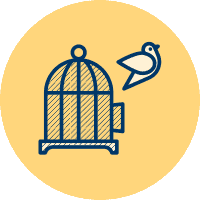Principle 3: Election data is open when it is available for free on the internet

Although it might seem obvious, it is necessary to state that open data should be free; in other words, the data should be available without any monetary restrictions. The principle of "available on the internet for free" is sometimes shortened and referred to as accessible data. Several studies have documented the fact that many citizens use the internet to look for information about the government or government policy.[1] Thus, posting election data on the internet is a way of making it open and accessible. Most EMBs already proactively publish some types of data on their websites and make them available at no charge to the user. In contexts where internet connections are unreliable or weak, citizens might request election data in an offline format, like a CD or thumbdrive. EMBs should have reasonable mechanisms in place to provide data in those circumstances.
Embedded in the idea of "available on the internet" is the idea that the data should be easy to locate ("discoverable"). When election data is clearly labeled and listed in sitemaps and well-known locations, it becomes easier to find. It is also good practice to make the link to the data stable so that people can easily re-find the information and refer others to the correct location. If the link is changed, those linking to the original location (i.e., through a bookmark or other links) will then have to search again to find the data. In their Open Data Policy Guidelines, the Sunlight Foundation suggests that providers create a central location devoted to publishing datasets and data policies. For example, Argentina's government has an online portal with a public data catalogue that includes election results. A user can search the catalogue and filter information by topic, source, file format (csv, txt, pdf) or license type. Data portals or similar websites make data more discoverable because they provide an "easy-to-access, searchable hub for multiple data sets.[2]"
The Pew's 2010 report entitled Government Online is one of the first studies that measured how citizens use the internet to get information on public institutions. ↩︎
Guideline 18 in the Sunlight Foundation's Open Data Policy Guidelines. ↩︎
